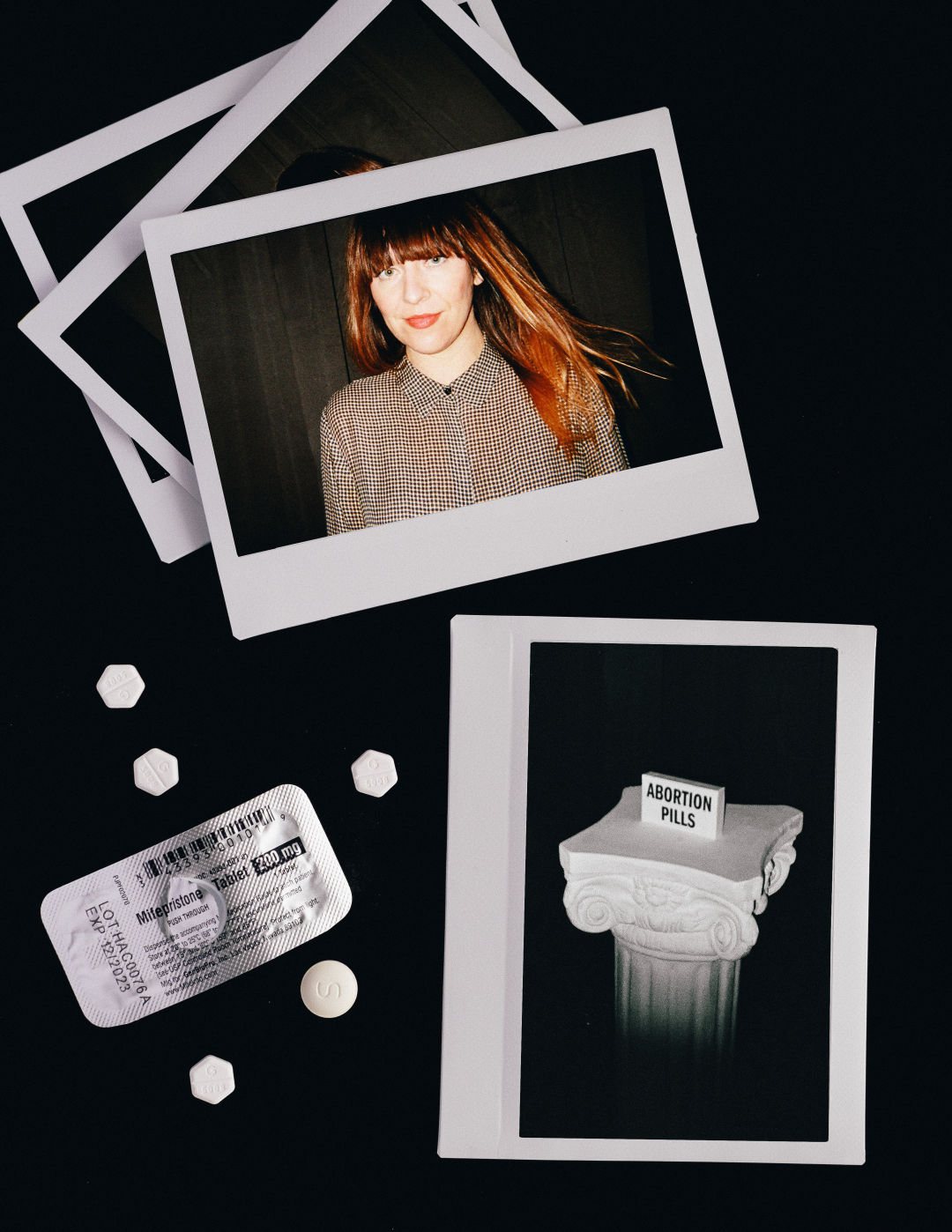Amelia Bonow Fights for Abortion Rights with Pills

Amelia Bonow stages photos, sometimes using fake abortion pill boxes, to spread awareness.
Image: Elizabeth Rudge
On the steps of the Supreme Court in Washington, DC, last December, Amelia Bonow took an abortion pill. She wasn’t pregnant; the Seattle activist publicly popped the 200mg of mifepristone in defiance of the oral arguments for Dobbs v. Jackson Women’s Health Organization, a case whose ruling this summer is expected to gut the federal right to abortion, even as it remains legal in states like Washington. Raised in Gig Harbor, Bonow planned to become a therapist when a single work of activism in 2015, publicly sharing the relatively mundane story of her own abortion, turned into a calling. Aided by writer Lindy West, Bonow’s #shoutyourabortion tag began a national wave of destigmatizing the act through personal testimonies. Bonow turned Shout Your Abortion into a four-person organization sponsored by a nonprofit, supporting independent clinics nationwide. Now she spreads awareness about the abortion pill, wresting control of the narrative—and the abortion itself. “Abortion pills becoming available by mail has the power to transform the social fabric surrounding abortion,” she says.
Women have been helping each other to do this since the beginning of time.
We can’t address any other social inequality without working towards every person having reproductive freedom.
At Seattle University, I got kind of obsessed with abortion by way of an amazing anthropology course.
I had an abortion at Planned Parenthood on Capitol Hill. It was not only not a bad experience, it was a profoundly positive experience.
I wrote a thing on Facebook that was just like, Hi, I had an abortion, and I am not sorry, and I’m not ashamed.
It was just sort of expected that you express that it was a difficult decision, that it was heavy, that it was a negative experience.
One of the most common things that people say to me is, I didn’t feel bad, but I felt bad that I didn’t feel bad.
It’s really difficult for people to wrap their minds around this, but Roe v. Wade is toast.
It is about certain that half of the United States will have banned abortion in the next couple of years.
There’s a false fixation on Roe that has blinded people to the fact that we already live in a country without meaningful access for millions of people.
We’re really used to thinking about abortion in terms of rights. But it’s about money. This right has not ever been guaranteed, it’s been a commodity that you can have if you can afford it.
Part of the work I see for myself in the future is to not allow people to be insulated from that disparity.
Abortion pills by mail change everything.
They’ve been on the market since 2000, but you had to get them put into your hand by a doctor. The reasons for those regulations are entirely cultural as opposed to medical.
During the pandemic, the FDA announced that they would be temporarily not enforcing those restrictions. They dropped the in-person dispensing requirement.
In red states, abortion by mail will be banned. But people can still do it anyway, to the degree that we work to make that true.
That does not mean that there’s not legal risk. That risk will be higher for marginalized folks, for poor people, for people of color, for immigrants.
We need to teach people how to break the law, and without getting into trouble.
We promise to help one another have abortions and do so without getting into trouble. That is my life’s work.




